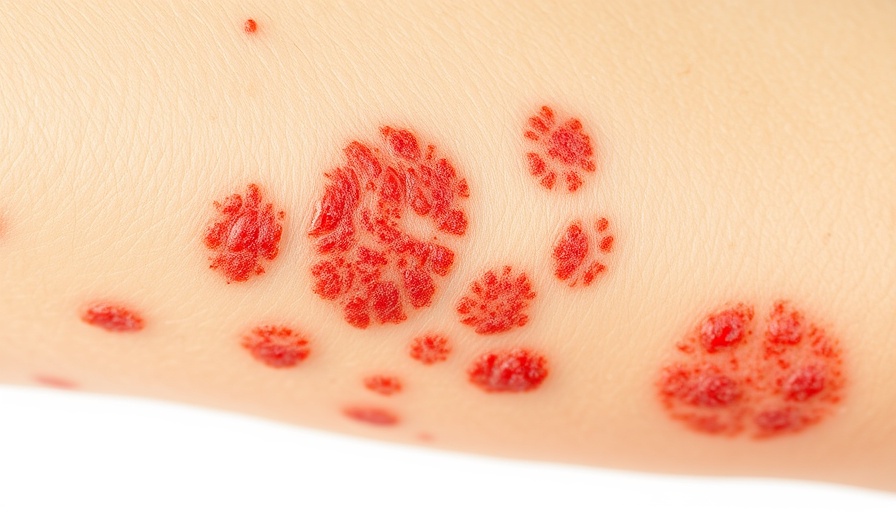
Abdominal Fat & Psoriasis: A Growing Connection
Recent studies have established a compelling link between abdominal fat and an increased risk of psoriasis, particularly among women. This emerging evidence shines a light on how body composition can influence the occurrence of chronic skin conditions. With psoriasis affecting millions globally, understanding the factors that elevate risk is crucial for both prevention and management.
The Gender Disparity in Psoriasis Incidence
Interestingly, while both men and women can develop psoriasis, research indicates that women who carry excess abdominal fat seem more susceptible to this condition. The inflammatory processes involved in psoriasis may be exacerbated by the metabolic issues linked to obesity, making it essential for women to take proactive measures regarding their health and weight management.
Understanding Psoriasis: What You Need to Know
Psoriasis is more than just a skin condition; it is a chronic autoimmune disease that leads to the rapid accumulation of skin cells, forming scales and red patches that can be itchy and painful. The links to obesity, particularly abdominal fat, suggest that lifestyle choices may have a profound impact on not just skin health but overall well-being.
Connecting the Dots: Inflammation, Fat, and Risk Factors
The relationship between obesity and psoriasis is largely attributed to inflammation. Abdominal fat is particularly problematic because it secretes various pro-inflammatory cytokines. These molecules play a role in the development of chronic inflammation, which can trigger or worsen psoriasis. Therefore, managing abdominal fat may help mitigate the risk for both inflammation-related conditions and psoriasis itself.
Potential Solutions: Lifestyle Changes and Prevention
For those at risk, particularly women, implementing lifestyle changes can be beneficial. Regular physical activity, a balanced diet rich in anti-inflammatory foods, and weight loss can all contribute to reducing abdominal fat and thus potentially lowering psoriasis risk. Engaging with healthcare providers to establish a personalized health plan is strongly advised.
Future Research Directions: What’s Next?
As the research evolves, it is imperative for future studies to delve deeper into how different patterns of fat storage impact psoriasis risk across various demographics. Additionally, understanding hormone interactions and their effects on both weight and skin health could open new avenues for treatment and prevention. By addressing these gaps, healthcare professionals will be better equipped to offer effective interventions for those predisposed to psoriasis.
The Takeaway: Knowledge is Power
Awareness of the connection between abdominal fat and psoriasis is a significant step toward empowering individuals to take charge of their health. By making informed choices about diet and exercise, especially in women, the risk of developing psoriasis can potentially be reduced. As we further explore the complexities of obesity and autoimmune conditions, the relationship between the two will provide essential insights for future health strategies.
 Add Row
Add Row  Add
Add 




Write A Comment